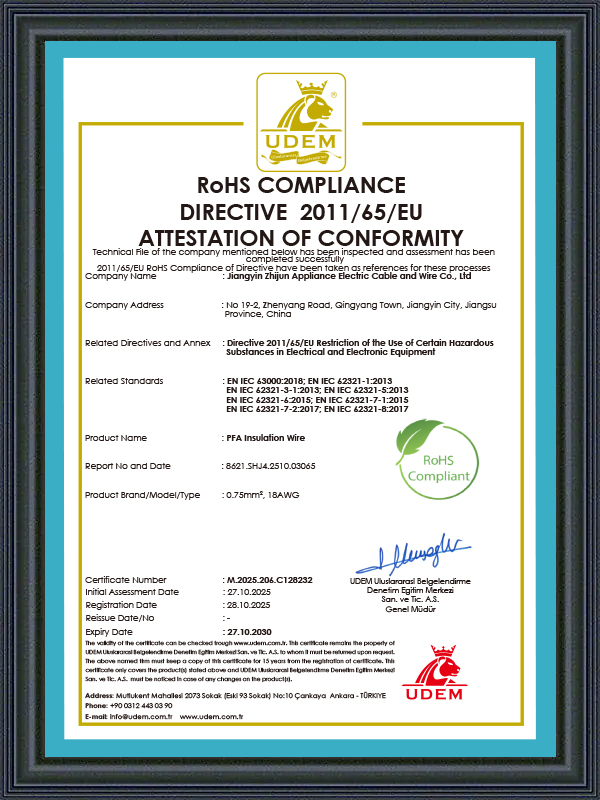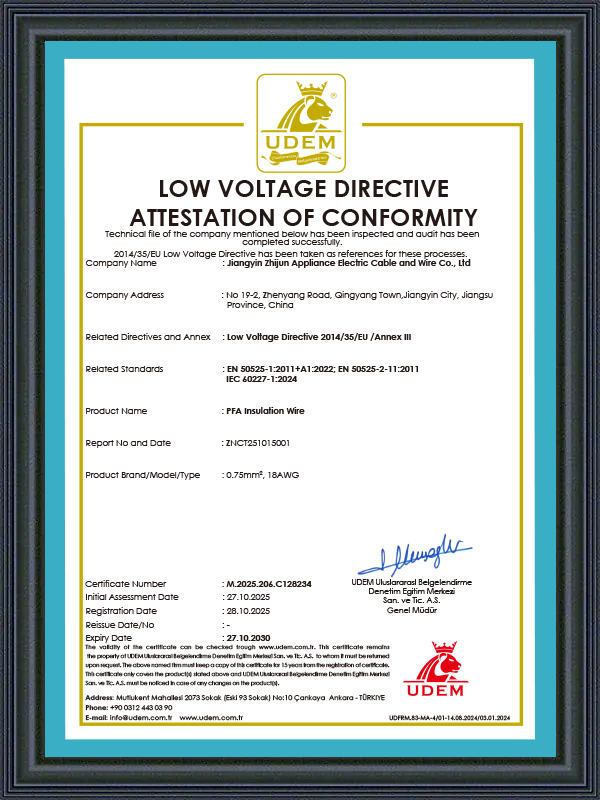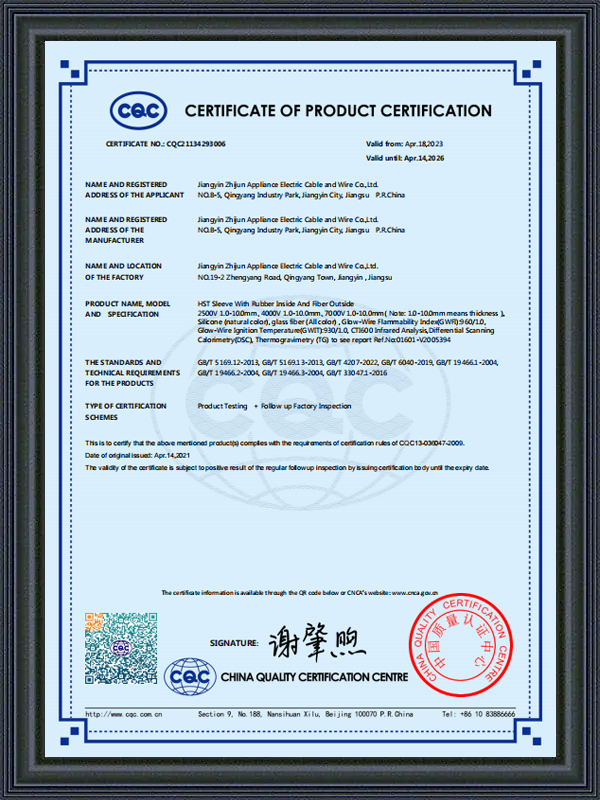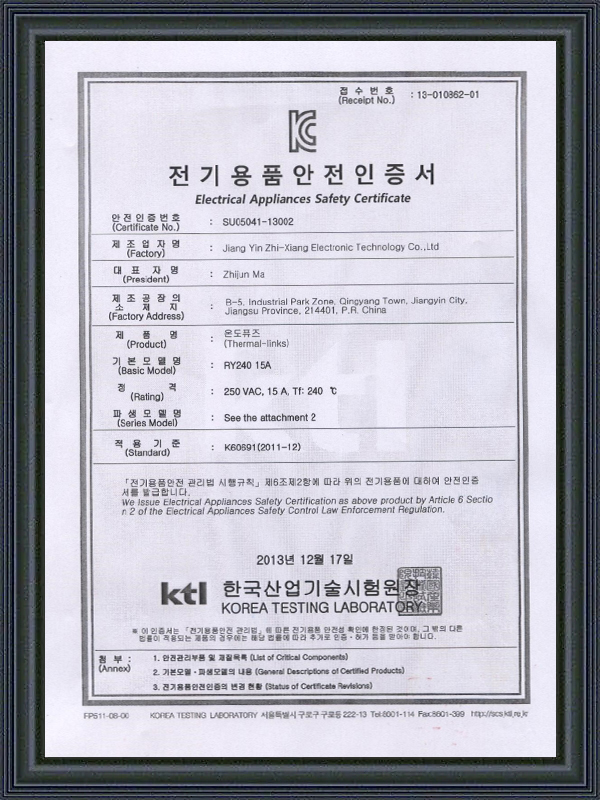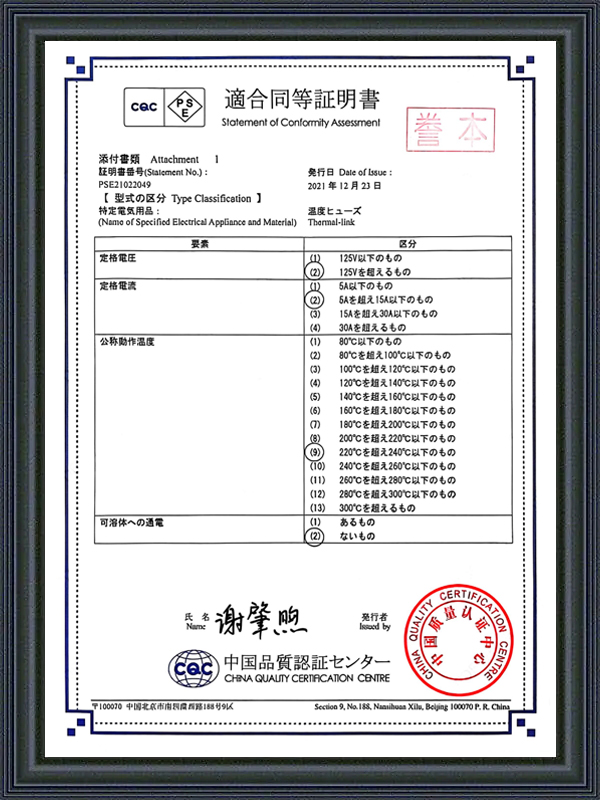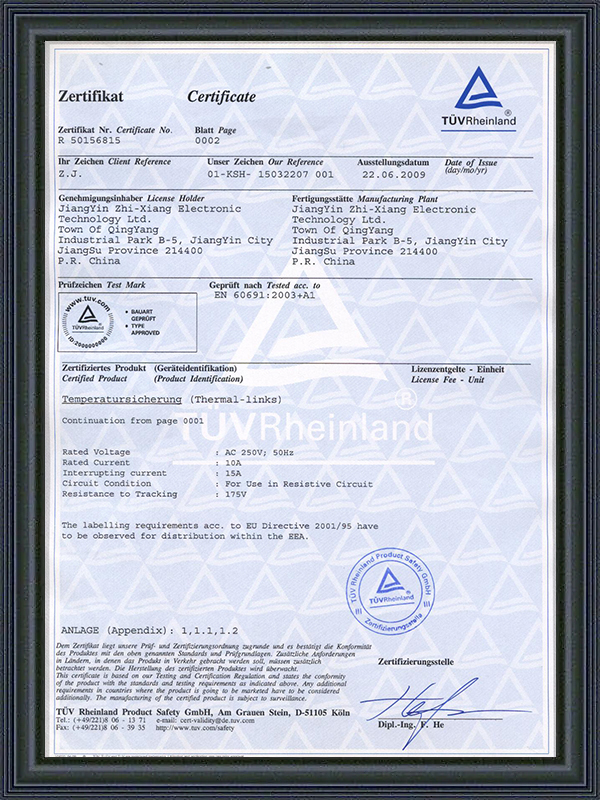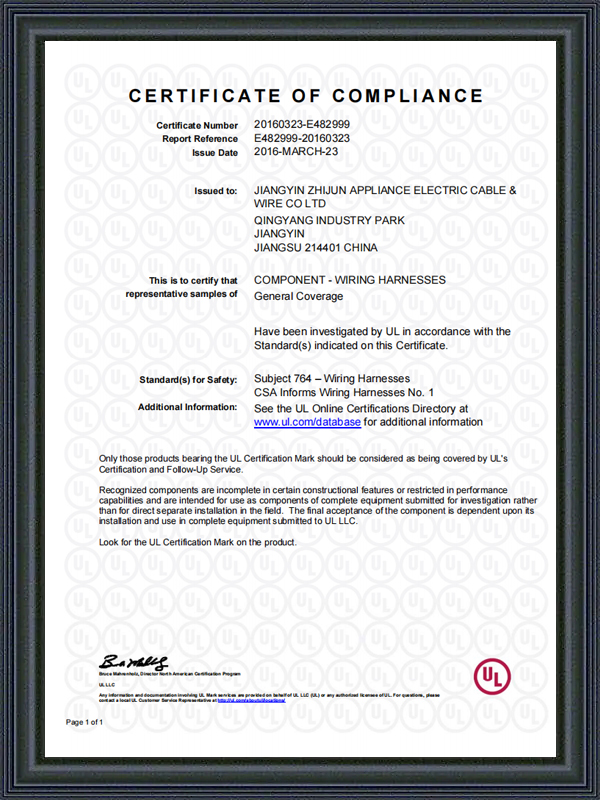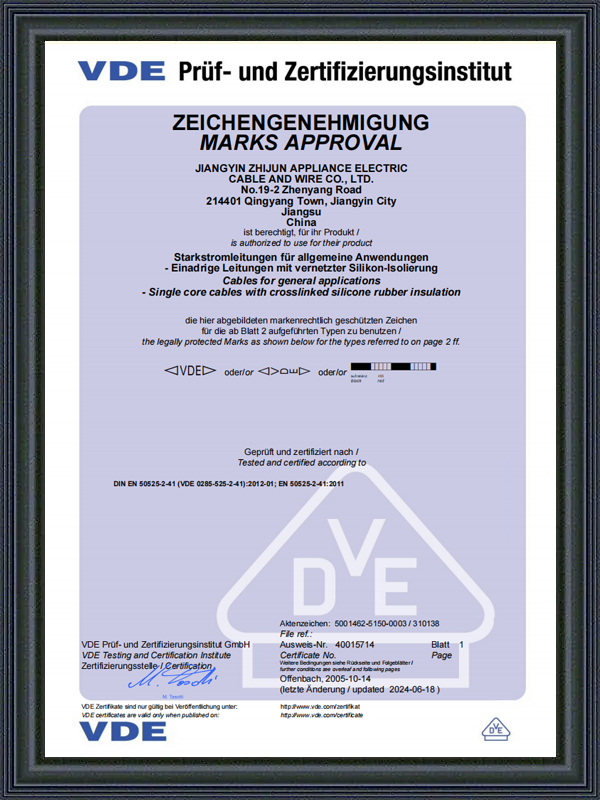UL1007 wire is a common electronic cable that meets the certification of the US safety standard UL (Underwriters Laboratories). 1. The conductor material is usu...
PVC Insulated Wires Suppliers
-
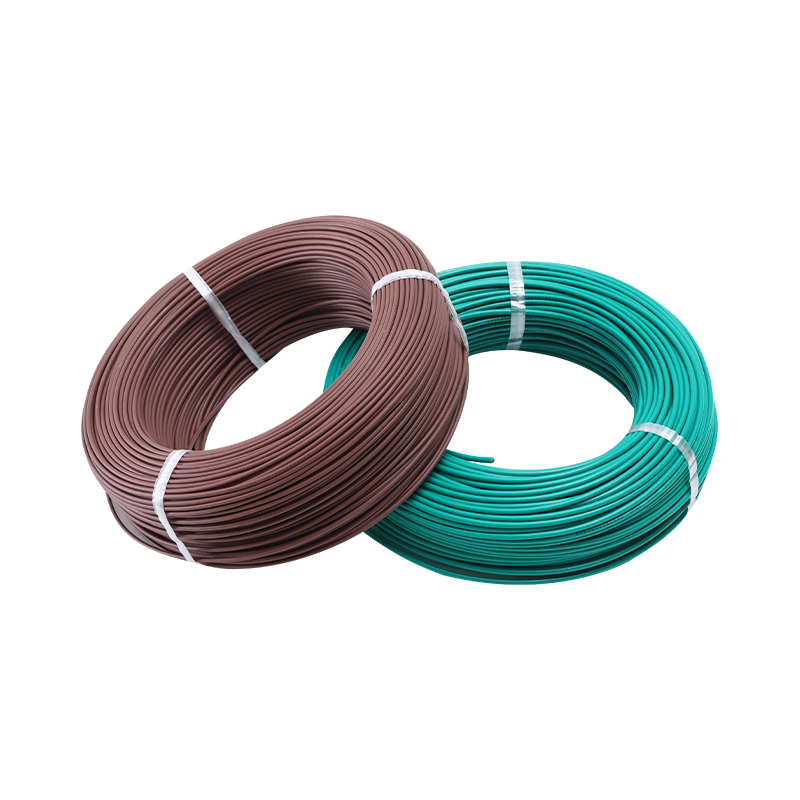
-
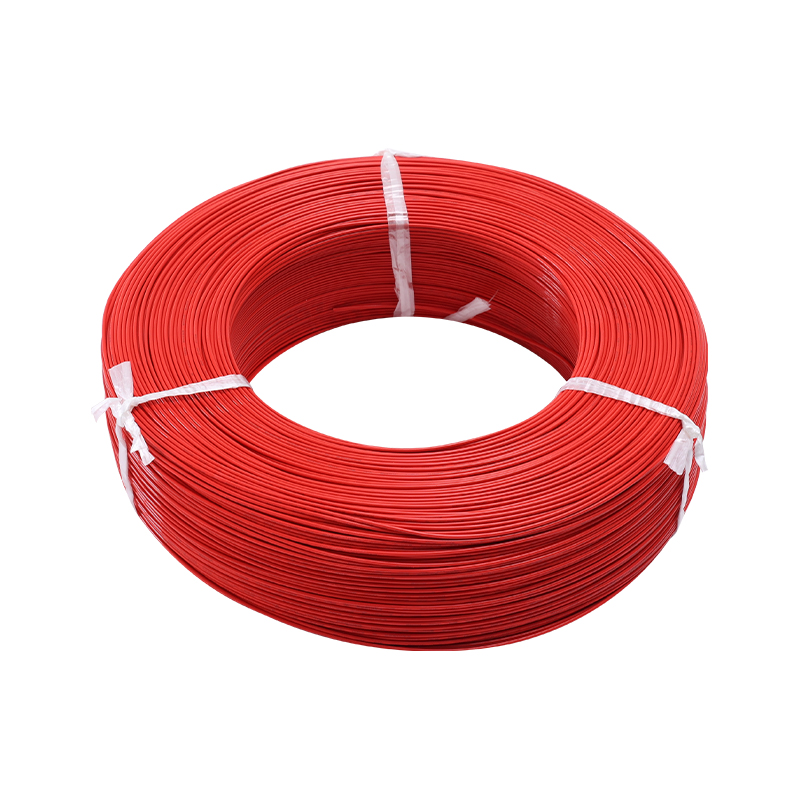 UL1015 105°C American Standard Electrical Internal Connection Wire
UL1015 105°C American Standard Electrical Internal Connection WireUL1015 wire is a common electronic wire that complies with UL (Underwriters Laboratories) standards and is mainly used for internal wiring of electrical equipme...
-
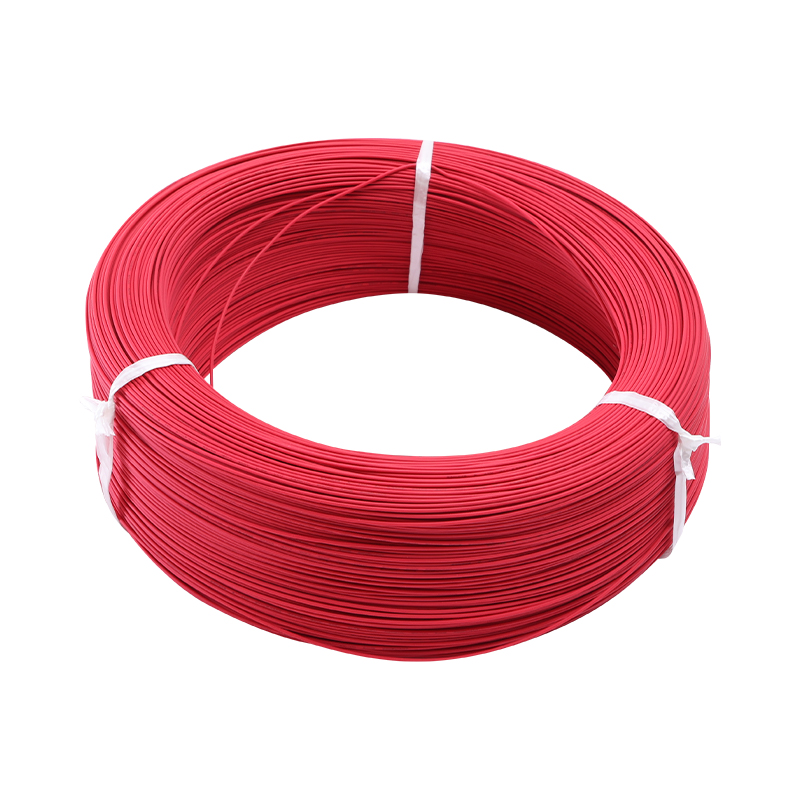 60227IEC02(RV) Non-Sheathed Cables For Fixed Wiring
60227IEC02(RV) Non-Sheathed Cables For Fixed WiringEngineered to operate at a rated temperature of 70°C and designed for voltages of 450/750V, these 60227IEC02(RV)Non-Sheathed Cables For Fixed Wiring For Fixed W...
-
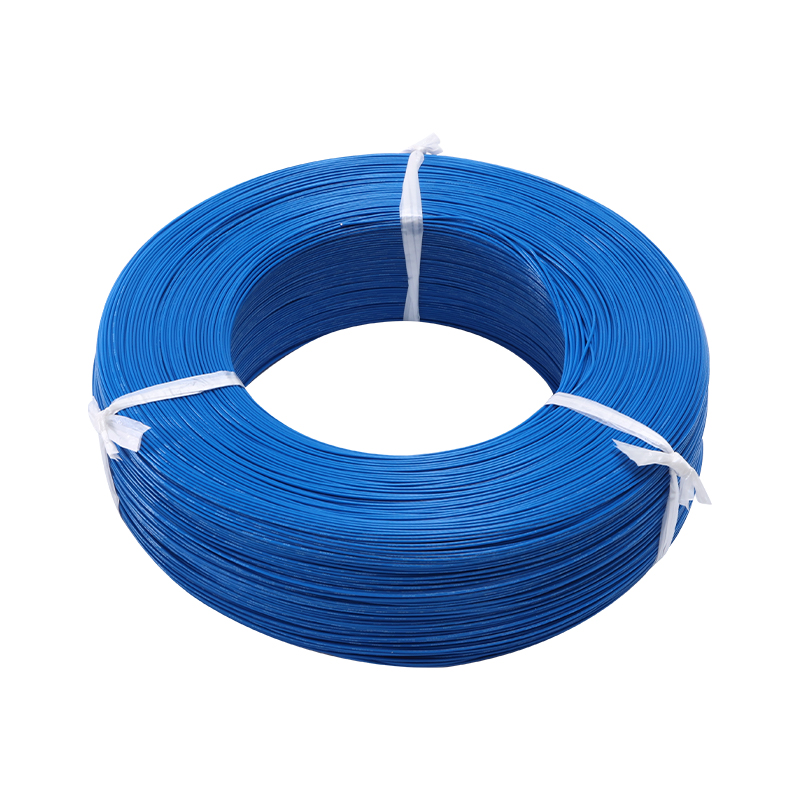 60227IEC06(RV) National Standard Wiring Single Core Cable
60227IEC06(RV) National Standard Wiring Single Core CableEngineered to meet rigorous national standards, this 60227IEC06(RV) National standard wiring single core cable features a stranded bare copper conductor (0.5–1....
-
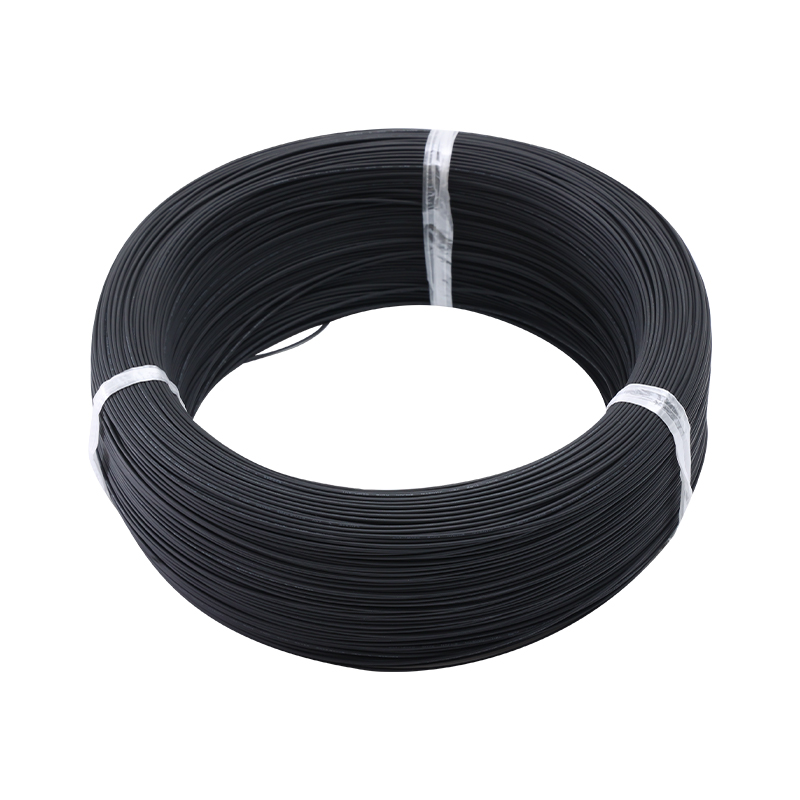 60227IEC08(RV-90) 3C Certification Non-Sheathed Cables For Fixed Wiring
60227IEC08(RV-90) 3C Certification Non-Sheathed Cables For Fixed WiringElevate your electrical systems with our IEC08 (RV-90) 3C Certification Non-Sheathed Cables For Fixed Wiring, engineered for safety, durability, and ease of use...
PVC wire refers to a conductor that uses polyvinyl chloride (PVC) as an insulating material. PVC is a commonly used thermoplastic with good insulation performance, chemical corrosion resistance and mechanical strength, so it is widely used in the wire and cable industry.
Features of PVC wire:
1. Good insulation performance: PVC material has high insulation resistance and can effectively prevent current leakage.
2. Chemical corrosion resistance: PVC has good resistance to chemical substances such as acids, alkalis, and salts, and is suitable for use in a variety of environments.
3. High mechanical strength: PVC conductors have certain flexibility and tensile strength and are not easy to break.
4. Heat resistance: The heat resistance temperature of ordinary PVC conductors is usually between 70℃ and 90℃, and specially formulated PVC can withstand higher temperatures.
5. Flame retardancy: PVC material has certain flame retardant properties and can slow down the spread of flames.
6. Low cost: The price of PVC material is relatively low, making PVC conductors have a high cost-effectiveness.
Application areas:
- Household appliances: such as televisions, refrigerators, washing machines, etc.
- Building wiring: used for indoor wires and cables.
- Industrial equipment: used for power connections of various industrial equipment.
- Automotive wiring harnesses: some automotive wiring harnesses also use PVC insulated wires.
Notes:
- Temperature limit: ordinary PVC wires are not suitable for long-term use in high temperature environments. High temperatures can cause PVC materials to age, harden, or even crack.
- Environmental issues: PVC materials may release harmful substances such as chlorine during production and use, so they need to be used with caution in certain occasions with strict environmental requirements.
Common specifications:
- Conductor material: usually copper or aluminum.
- Conductor cross-sectional area: common ones are 0.5mm², 1.0mm², 1.5mm², 2.5mm², etc.
- Rated voltage: common ones are 300/500V, 450/750V, etc.
PVC wires have been widely used in electrical engineering due to their good performance and low cost.
-
Silicone heating cables represent a sophisticated thermal management solution designed to deliver consistent, reliable heat in environments where conventional heating systems prove inadequate or impractical. These specialized cables consist of resistance heating elements encased within flexible silicone rubber insulati...
READ MORE -
Introduction to PVC Wiring Installation PVC wiring installation plays a critical role in modern electrical and electronic systems. Polyvinyl chloride (PVC) insulated wires are widely used for residential, commercial, and industrial applications due to their flexibility, durability, and safety. Proper installation ensur...
READ MORE -
High temperature wire is a type of electrical wire designed to operate safely and reliably in environments where normal wiring would fail due to heat, chemical exposure, or extreme mechanical stress. These wires use specialized insulation materials and conductor designs to withstand sustained high temperatures, often r...
READ MORE
Exploring the Flame Retardant Properties of PVC Wire Insulation: A Crucial Safety Feature
PVC wire and PVC insulated wires are widely used across various sectors due to their outstanding insulation properties, cost-effectiveness, and versatility. One of the key features that make PVC cables an essential choice is their flame retardant capabilities. As a manufacturer committed to providing high-quality electrical solutions, understanding how PVC wires help to prevent the spread of fire is critical, especially when these cables are part of critical infrastructure or high-risk environments.
Flame retardancy in PVC is a result of both the material's inherent properties and the additives incorporated into the composition during manufacturing. The chlorine content in PVC plays a significant role in its ability to resist flames. When exposed to fire, PVC insulation releases hydrochloric acid, which reacts with oxygen, slowing the combustion process. This natural flame retardancy ensures that PVC cables can withstand high temperatures, thereby preventing electrical fires from spreading rapidly.
The flame-retardant properties of PVC wires are not only crucial for preventing fire hazards but also for enhancing the overall safety of electrical systems. For example, in residential buildings, PVC cables help mitigate the risk of fire spreading through walls and ceilings by acting as a barrier to flames. Likewise, in industrial settings where electrical systems are exposed to harsh conditions, the use of PVC insulated wires ensures that any sparks or heat generated within the wires do not lead to catastrophic fires.
However, the flame retardant effectiveness of PVC cables depends on the specific formulation used. While standard PVC wire provides a certain level of flame resistance, manufacturers can further enhance this property by adding specific flame-retardant additives to the PVC compound. These additives improve the material’s ability to self-extinguish once the heat source is removed, thus ensuring that the risk of fire is minimized over time.
In addition to the flame retardant additives, the thickness of the PVC insulation also impacts its ability to resist flames. Thicker PVC coatings can offer enhanced protection, making these cables suitable for more demanding applications. For instance, PVC wires with thicker insulation are often used in commercial or industrial environments where the risk of fire is higher, and more robust protection is required.
Understanding how PVC wires handle high heat and flame exposure is essential for engineers and designers when specifying cables for various projects. It is especially important to consider these properties when working with electrical systems in areas such as commercial buildings, automotive wiring, and even heavy-duty industrial equipment. Ensuring that the right PVC cables are selected can prevent costly damage and, more importantly, protect lives.
However, while PVC’s flame retardancy is beneficial, it’s important to remember that PVC cables are not entirely fireproof. Under extreme conditions, such as prolonged exposure to high temperatures or direct flames, PVC insulation can eventually degrade, potentially leading to failure. This is why selecting cables with appropriate thermal ratings is crucial. Specialized formulations of PVC cables are available, designed to withstand temperatures well beyond the standard range, offering higher resistance to heat in environments where conventional PVC wires may not be suitable.
As a manufacturer, we recognize that the performance of PVC insulated wires is a critical concern for our customers. That’s why we focus on producing PVC cables that meet rigorous safety standards and offer optimal flame retardant properties, ensuring both durability and protection. We are dedicated to providing our clients with products that not only meet but exceed industry expectations, offering peace of mind knowing that the wires in their systems will perform safely under challenging conditions.
By continuing to invest in improving the quality and safety of PVC wires, manufacturers can further contribute to the overall safety of electrical systems across various applications. Whether it's residential, commercial, or industrial use, the flame retardant capabilities of PVC insulated wires remain a cornerstone of electrical safety. With the right PVC cables in place, users can rest assured knowing that their electrical systems are protected, minimizing the risk of fire and ensuring long-term reliability.
Choosing the right PVC wire for any application requires careful consideration of the flame retardant properties and how they align with the specific needs of the project. As the demand for safer, more reliable electrical solutions continues to grow, PVC cables will undoubtedly remain a top choice for engineers, designers, and safety professionals alike.



 English
English عربى
عربى Español
Español



